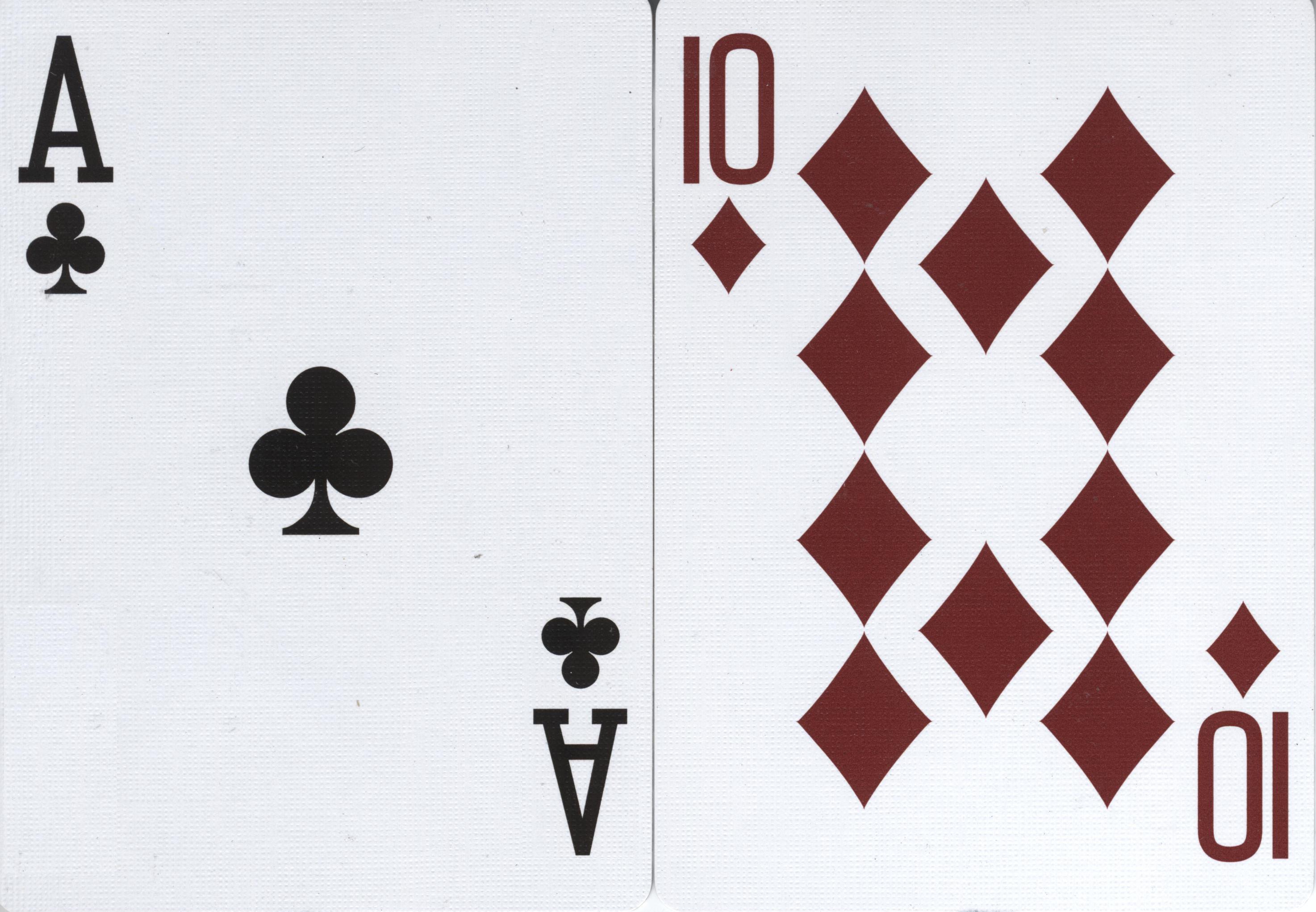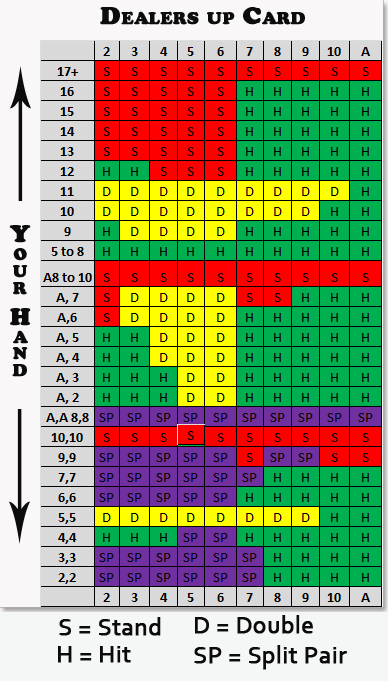
A blackjack dealer is an individual who works in a casino and who deals the cards for blackjack. Blackjack is a table game in which players aim to reach as close to 21 as possible without going over. The object for players is to either have a higher number than the dealer and/or for the dealer to go over 21 so the players will win their hands.
You have to hit 8 or less and stand 12+. Dealer's Card is a 3. There is a very strong possibility that the dealer can still get busted. On the other hand, there's a slight advantage to take a hit when you have a 12 even if a bust will occur in 4 out of 13. It's still wise to double down when you get a 9, 10, or 11. So you should hit 8 or less. Soft 14 (A,3) doubles against dealer 5 through 6, otherwise hit. Soft 13 (A,2) doubles against dealer 5 through 6, otherwise hit. Hard totals: A hard total is any hand that does not start with an ace in it, or it has been dealt an ace that can only be counted as 1 instead of 11.

Generally, blackjack is played in locations where gambling is legal. This occurs within the United States in Atlantic City, New Jersey, Las Vegas Nevada, and on Indian reservations. Some casinos are also on riverboats off-shore. Other countries also have various rules on the legality of gambling; in Monte Carlo for example, gambling is legal as well as in some parts of Canada and in certain clubs and areas in England. Many cruise ships and Caribbean islands also offer blackjack play.
A blackjack dealer may work in any of these environments in which gambling is legal and in which people come to play table games. A dealer generally must be licensed or authorized to deal blackjack. This is usually done by a gaming commission or some other related body, or by the casino who hires him. The certification usually requires a background check in which the dealer is fingerprinted and it is determined whether the dealer has any criminal convictions that would preclude him from being trustworthy as a blackjack dealer.
Once the dealer has been hired, he has several primary duties. First, he must change money for customers. This involves being able to quickly count money and trade it in for chips used to bet at the table. The dealer may also be required to know how to spot counterfeit money so he can identify such bills if the individual tries to trade them in for chips.
The dealer also shuffles cards or places them in an automatic shuffler. Many casinos have dealers using six decks combined to deal the blackjack hands from. The dealer must ensure the decks are all adequately shuffled.

A blackjack dealer is an individual who works in a casino and who deals the cards for blackjack. Blackjack is a table game in which players aim to reach as close to 21 as possible without going over. The object for players is to either have a higher number than the dealer and/or for the dealer to go over 21 so the players will win their hands.
You have to hit 8 or less and stand 12+. Dealer's Card is a 3. There is a very strong possibility that the dealer can still get busted. On the other hand, there's a slight advantage to take a hit when you have a 12 even if a bust will occur in 4 out of 13. It's still wise to double down when you get a 9, 10, or 11. So you should hit 8 or less. Soft 14 (A,3) doubles against dealer 5 through 6, otherwise hit. Soft 13 (A,2) doubles against dealer 5 through 6, otherwise hit. Hard totals: A hard total is any hand that does not start with an ace in it, or it has been dealt an ace that can only be counted as 1 instead of 11.
Generally, blackjack is played in locations where gambling is legal. This occurs within the United States in Atlantic City, New Jersey, Las Vegas Nevada, and on Indian reservations. Some casinos are also on riverboats off-shore. Other countries also have various rules on the legality of gambling; in Monte Carlo for example, gambling is legal as well as in some parts of Canada and in certain clubs and areas in England. Many cruise ships and Caribbean islands also offer blackjack play.
A blackjack dealer may work in any of these environments in which gambling is legal and in which people come to play table games. A dealer generally must be licensed or authorized to deal blackjack. This is usually done by a gaming commission or some other related body, or by the casino who hires him. The certification usually requires a background check in which the dealer is fingerprinted and it is determined whether the dealer has any criminal convictions that would preclude him from being trustworthy as a blackjack dealer.
Once the dealer has been hired, he has several primary duties. First, he must change money for customers. This involves being able to quickly count money and trade it in for chips used to bet at the table. The dealer may also be required to know how to spot counterfeit money so he can identify such bills if the individual tries to trade them in for chips.
The dealer also shuffles cards or places them in an automatic shuffler. Many casinos have dealers using six decks combined to deal the blackjack hands from. The dealer must ensure the decks are all adequately shuffled.
Electronic Blackjack Machines
He must then deal cards to the players at the table. This involves placing two cards in front of each player and taking two cards himself, one face up and the other face down. The players then have the option to hit, which means taking another card, or stand, which means refraining from taking another card and keep their score as is. The blackjack dealer then takes cards himself or stands according to specific predefined rules depending on the numerical value his cards add up to. Finally, the blackjack dealer pays individuals who have won the hand.